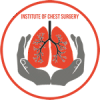Chest trauma, resulting from various incidents like motor vehicle accidents, falls, or sports injuries, can lead to severe and life-threatening conditions. When individuals experience chest trauma, it is essential to receive prompt and appropriate medical treatment to prevent immediate complications. However, many patients wonder if there are any potential long-term effects or complications that may arise after undergoing chest trauma treatment. In this article, we will delve into this topic, exploring the possible long-term consequences that patients should be aware of, even after their initial recovery.
Understanding Chest Trauma and Its Treatment
Chest trauma encompasses a range of injuries, including rib fractures, lung contusions, pneumothorax (collapsed lung), and more. The treatment for chest trauma depends on the severity and type of injury. In many cases, immediate medical attention is necessary, and treatment may involve stabilizing the patient, managing pain, and providing oxygen support.
For minor chest trauma, rest, pain relief medication, and monitoring may be sufficient. However, severe cases often require more intensive medical interventions, such as chest tube insertion to drain fluid or air from the chest cavity, or surgery to repair damaged organs or tissues.
The Importance of Post-Treatment Monitoring
After undergoing chest trauma treatment, patients are usually discharged from the hospital when their condition stabilizes. However, it is crucial to understand that the road to complete recovery may be longer than the initial hospital stay. Medical follow-up visits are essential to monitor the healing process, detect any potential complications early on, and ensure that patients are on the right track to a full recovery.
Potential Long-Term Effects and Complications
1. Chronic Pain and Discomfort:
One of the most common long-term effects of chest trauma is chronic pain and discomfort. Even after the initial healing phase, patients may experience lingering pain due to nerve damage, musculoskeletal issues, or scar tissue formation. This discomfort can affect the individual’s quality of life and may require ongoing pain management strategies or physical therapy.
2. Pulmonary Issues:
Chest trauma can impact the respiratory system, leading to long-term pulmonary complications. Some patients may develop chronic respiratory conditions, such as chronic obstructive pulmonary disease (COPD), due to the damage caused to the lungs during the initial injury. Moreover, lung infections may pose a risk to those with weakened lung function, especially if they have undergone chest surgery or had a prolonged hospital stay.
3. Psychological Effects:
Experiencing chest trauma and the subsequent treatment can be highly distressing for patients, leading to psychological effects such as post-traumatic stress disorder (PTSD) or anxiety. Emotional trauma may persist long after the physical injuries have healed, requiring counseling or therapy to support the patient’s mental well-being.
4. Reduced Physical Function:
Depending on the severity of the chest trauma and the extent of the injury, patients may experience a decline in physical function. Some individuals may struggle with reduced lung capacity or limited mobility, affecting their ability to engage in daily activities or physical exercise.
5. Cardiac Complications:
Injuries to the chest can also affect the heart and its surrounding structures. Cardiac complications, such as arrhythmias or pericardial effusion (fluid around the heart), may develop as a result of chest trauma, necessitating ongoing monitoring and treatment by a cardiologist.
6. Development of Scar Tissue:
After chest surgery or significant trauma, scar tissue may form in the chest cavity. While scar tissue is a natural part of the healing process, excessive or abnormal scarring can cause complications like restricted lung movement or chronic pain.
7. Long-Term Medication:
In some cases, patients may require long-term medication to manage the consequences of chest trauma, such as pain medications, blood thinners, or medications to prevent infections or cardiac issues.
Conclusion
While immediate and effective treatment for chest trauma is crucial, patients must be aware that the healing process may extend beyond the initial recovery phase. Potential long-term effects and complications can arise, impacting an individual’s physical, emotional, and psychological well-being. Regular medical follow-ups, adherence to treatment plans, and a focus on overall health and well-being are essential for those who have experienced chest trauma. It is crucial for patients to communicate openly with their healthcare providers about any ongoing symptoms or concerns to ensure the best possible long-term outcomes.






